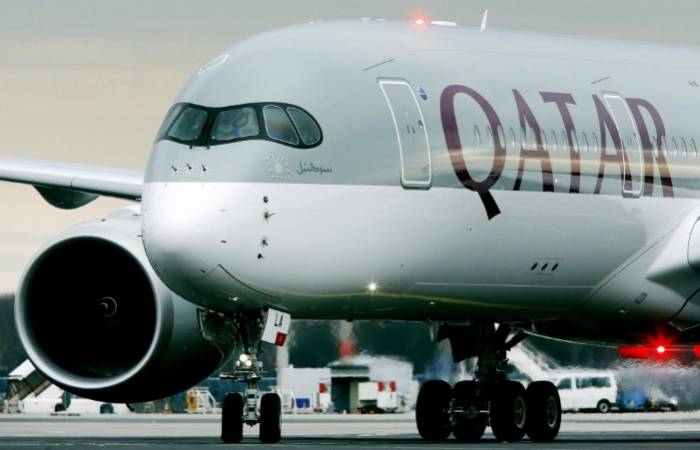The Nigerian Civil Aviation Authority (NCAA) has issued a stern warning to Qatar Airways and other international carriers over alleged violations of passenger rights in the country. The regulator stressed that it would not hesitate to impose sanctions on any airline that continues to flout Nigeria’s aviation regulations and undermine consumer protection laws.
According to the NCAA, the number of complaints lodged by Nigerian passengers against international airlines has grown significantly in recent months. These grievances cover a wide range of issues, including flight delays, cancellations without proper notification or compensation, refusal to process refunds, poor handling of passengers during disruptions, and discriminatory treatment compared to services offered to travelers in other countries. The regulator particularly noted recurring infractions by Qatar Airways, one of the leading foreign carriers operating in Nigeria, accusing it of failing to comply fully with passenger rights provisions under the Nigeria Civil Aviation Regulations (Nig. CARs).

Captain Chris Najomo, the Acting Director-General of the NCAA, emphasized that the agency will no longer tolerate the mistreatment of Nigerian passengers by airlines that prioritize compliance elsewhere while neglecting obligations in Nigeria. He reiterated that the NCAA has clear legal frameworks that define passengers’ entitlements in cases of delays, cancellations, overbooking, or denied boarding. “Our responsibility is to protect Nigerian passengers, and we will not hesitate to sanction airlines, no matter their size or global standing, if they persist in violating these rights. We are committed to enforcing the law to the fullest extent,” Najomo said.
The NCAA outlined possible sanctions that could be imposed on offending carriers, ranging from fines and operational restrictions to suspension or outright withdrawal of licenses. The regulator’s decision has been welcomed by consumer advocacy groups, who argue that foreign airlines often exploit gaps in enforcement to subject Nigerians to unfair treatment. They noted that passengers flying the same carriers on international routes in Europe, North America, and Asia enjoy higher levels of compensation and customer care, while Nigerian travelers are left with inadequate redress.
Qatar Airways, which operates routes connecting Lagos and Abuja to global destinations, was singled out as a carrier under close watch. Despite its reputation as a world-class airline, Nigerian passengers have repeatedly complained of service failures that contradict its global standards. The NCAA revealed that investigations into the conduct of other carriers are also ongoing, with additional airlines likely to face warnings or sanctions if found culpable.
Industry analysts see the NCAA’s tough stance as a critical step in restoring trust in Nigeria’s aviation sector. They argue that with airfares at record highs and travel already burdened by economic hardship, Nigerian passengers deserve stronger protection and accountability from service providers. Ensuring compliance with passenger rights is also seen as vital for boosting Nigeria’s standing in the global aviation market, especially as the country seeks to position itself as a hub for West and Central Africa.
The timing of this regulatory clampdown is also significant, as Nigeria continues to negotiate bilateral agreements to attract more international carriers and enhance connectivity. Experts say that enforcing robust consumer protections not only benefits passengers but also signals to global partners that Nigeria is committed to upholding international aviation standards. However, they caution that regulators must maintain a careful balance between strict enforcement and ensuring Nigeria remains attractive for investment by foreign airlines.
For passengers, the NCAA has reiterated the importance of knowing their rights. Under Nigeria’s aviation laws, travelers are entitled to compensation for flight cancellations, delays beyond certain thresholds, and denied boarding due to overbooking. They also have the right to prompt refunds when airlines fail to provide services as promised. To make enforcement more effective, the NCAA is working on enhancing its complaint management systems, including introducing digital platforms to enable faster submission and resolution of grievances.
The regulator also plans to strengthen collaboration with consumer protection agencies and stakeholders in the aviation sector to ensure passengers are adequately sensitized about their rights and empowered to demand compliance. By doing so, the NCAA hopes to create a culture of accountability where airlines understand that Nigeria is not a jurisdiction where passenger welfare can be compromised without consequences.
Observers believe that this latest move is a turning point in Nigeria’s aviation industry, where consumer complaints have historically been overlooked or resolved slowly. The NCAA’s open warning to Qatar Airways and other carriers represents a shift toward a more assertive regulatory approach. If consistently enforced, this could enhance the travel experience, increase passenger confidence, and ultimately attract more patronage for the aviation industry.
In conclusion, the NCAA’s strong stance underscores Nigeria’s determination to protect its citizens from exploitation in the aviation sector. Airlines like Qatar Airways, which benefit significantly from the Nigerian market, are now under pressure to align with local regulations and treat passengers with fairness and dignity. The coming months will reveal whether the airlines heed these warnings or face the consequences of regulatory sanctions. Either way, Nigeria’s aviation industry appears to be charting a new course toward greater accountability and stronger consumer protection.
Support InfoStride News' Credible Journalism: Only credible journalism can guarantee a fair, accountable and transparent society, including democracy and government. It involves a lot of efforts and money. We need your support. Click here to Donate
